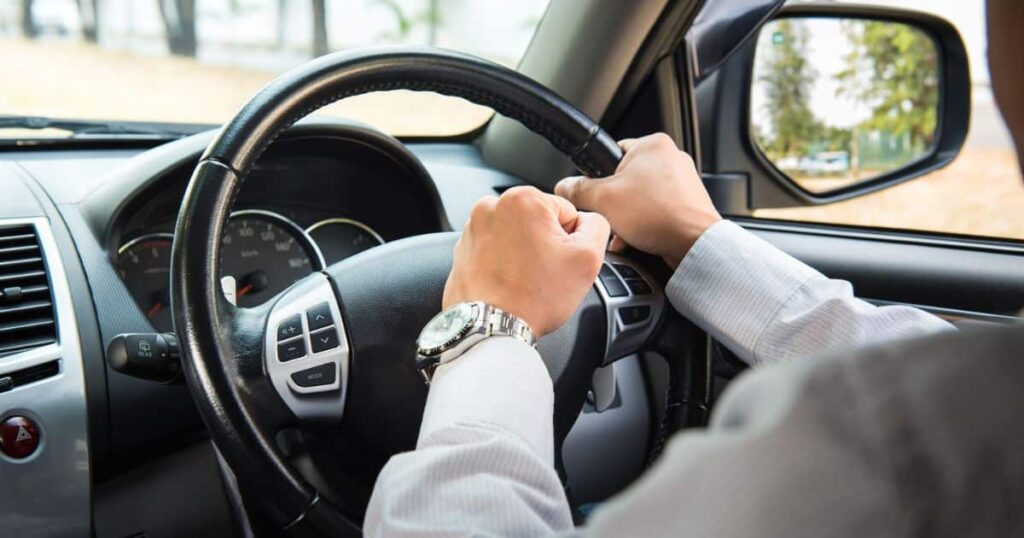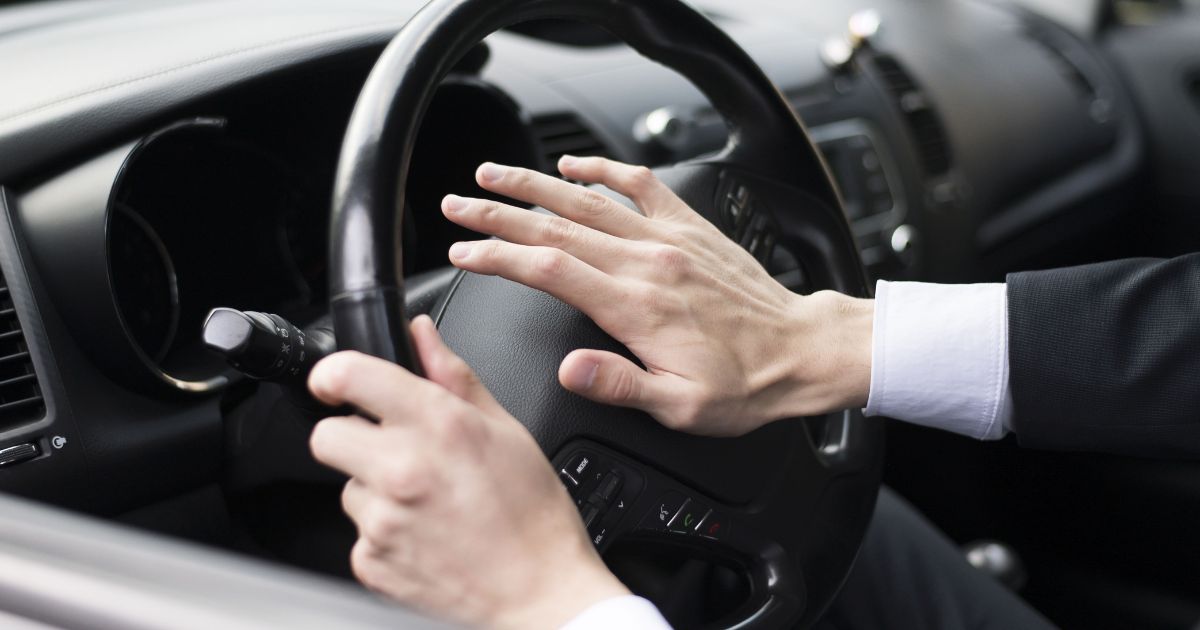Have you ever been startled by the unexpected symphony of your car horn while it sits motionless in a parking space? This puzzling phenomenon can leave you scratching your head, as you wonder why your trusty vehicle is suddenly expressing its vocal prowess. In this article, we will delve into the various possible causes behind a honking car when parked, providing you with troubleshooting tips and insights to help you put an end to this cacophony and restore harmony to your vehicle.
Key Takeaways
- Possible causes of a honking car while parked include malfunction in the vehicle’s alarm system, faulty sensors or wiring, stuck horn button, and short circuit in the horn circuit.
- Troubleshooting a car horn that won’t stop honking involves checking the horn’s wiring and connections, inspecting the horn’s relay and fuse, testing the horn switch and wiring for malfunction, ensuring secure and undamaged connections, and replacing faulty relay or fuse if necessary.
- Understanding car horn malfunctions includes recognizing that a faulty horn switch leads to inability to activate the horn, a problem in the horn circuit results in no power supply to the horn, a bad horn relay causes improper horn functioning, and horn alarm or unexpected horn blowing indicates an issue with the horn membrane switch or horn assembly.
- To stop a car horn from honking by itself, one should check the horn relay for faults, examine the wiring for damage or loose connections, test the horn switch for proper functioning, replace faulty relay, wiring, or switch if needed, and address the underlying causes to prevent unexpected horn honking.
Possible Causes of a Honking Car While Parked
A parked car emitting incessant honking may signal a malfunction in its alarm system. Such incidents can arise from faulty sensors or wiring, prompting the alarm to trigger and the horn to sound continuously. Additional causes may involve a stuck horn button or a short circuit in the horn circuit. Prompt diagnosis and resolution of these issues are crucial to preventing both unwarranted noise disturbances and potential damage to the car’s electrical system. Regular maintenance practices, such as a thorough inspection during a routine Car Wash, can contribute to early detection and mitigation of these concerns.
Troubleshooting a Car Horn That Won’t Stop Honking

Troubleshooting a car horn that won’t stop honking requires a systematic approach and a thorough examination of potential causes. To help you troubleshoot the issue, here are three steps you can follow:
- Check the horn’s wiring and connections to ensure they are secure and free from damage.
- Inspect the horn’s relay and fuse to see if they need replacing.
- Test the horn switch and wiring for any signs of malfunction.
Understanding Car Horn Malfunctions
To fully comprehend the causes and implications of car horn malfunctions, it is essential to delve into their underlying mechanisms and potential factors contributing to their occurrence. A car horn malfunction can be attributed to various issues, such as a faulty horn switch, a problem in the horn circuit, or a bad horn relay. Additionally, a malfunctioning horn alarm or a horn blowing unexpectedly could also indicate a problem with the horn membrane switch or the actual horn assembly. Understanding these components and their potential faults is crucial in troubleshooting and resolving car horn malfunctions.
| Potential Causes | Implications |
|---|---|
| Faulty horn switch | Inability to activate the horn |
| Problem in horn circuit | No power supply to the horn, leading to its malfunction |
| Bad horn relay | Horn not functioning properly, causing safety concerns |
How to Stop Your Car Horn From Honking by Itself
In order to prevent your car horn from honking by itself, it is important to identify and address the underlying causes of this unexpected behavior. Here are three steps you can take to stop your car horn from honking when parked:
- Check the horn relay: A faulty horn relay can cause the horn to honk on its own. Inspect the relay and replace it if necessary.
- Examine the wiring: Damaged or loose wiring connections can trigger the horn to honk. Carefully inspect the wiring and repair any issues found.
- Test the horn switch: A malfunctioning horn switch can also cause the horn to honk unexpectedly. Test the switch for proper functioning and replace it if needed.
Dealing With an Erratic Car Horn
One possible way to address an erratic car horn is by checking the electrical connections and ensuring they are secure. An erratic car horn, characterized by unexpected horn honks or honk noises when the car is parked, can be caused by various electrical issues. Faulty wiring or a faulty horn switch can disrupt the electrical circuit and result in the erratic horn behavior. To fix this issue, a thorough diagnostic procedure is necessary to identify and repair the underlying electrical problem. Understanding the connection between car alarms and honking horns can provide further insights into troubleshooting and resolving the issue.
The Link Between Car Alarms and Honking Horns

Many car owners experience frequent honking when their car is parked due to a small percentage of car alarms being triggered by external factors. The link between car alarms and honking horns can be attributed to various issues related to the horn system. Common causes include a faulty horn relay, a malfunctioning horn pad or button, a blown horn fuse, damaged horn wires, or a problem with the wiring in the steering wheel or steering column. These issues can result in a clicking sound or the horn continuously honking. Understanding these potential problems is crucial for preventing unwanted car horn honking.
Preventing Unwanted Car Horn Honking
Additionally, car owners can take proactive measures to prevent unwanted car horn honking. One way to do this is by regularly checking the battery to ensure it is functioning properly. Another method is to inspect the horn for any signs of damage or malfunction, such as a broken horn switch or faulty relay. Furthermore, checking the fuse boxes and clock springs can help identify any issues that may cause the horn to honk unexpectedly. Consulting repair guides or seeking professional assistance can also increase the repairability of electric horns and reduce the likelihood of noise disturbances.
| Measures to Prevent Unwanted Car Horn Honking | |
|---|---|
| Regularly check the car battery | Inspect the horn for damage or malfunction |
| Check fuse boxes for any issues | Examine clock springs for potential faults |
| Consult repair guides for assistance | Seek professional help if necessary |
Fixing a Stuck Car Horn
Occasionally, car owners may encounter a stuck car horn and need to know how to fix it. Here are three steps to fix a stuck car horn:
- Inspect the stuck horn switch: Check if the horn switch is stuck or damaged. If necessary, replace the switch to restore functionality.
- Check for a broken spring: A broken spring can cause the horn to stay engaged. Inspect the spring and replace if necessary.
- Repair the control unit or sensor: If the issue lies with the control unit or sensor, consult a professional or refer to tech repair news for guidance.
Remember to use precision tools and refer to repairability learning resources to ensure a successful fix. Ignoring a stuck car horn can lead to battery drain and potential steering issues.
Diagnosing a Honking Car Horn Issue
To effectively diagnose a honking car horn issue, it is important to follow a step-by-step process and systematically troubleshoot potential causes. Start by checking the fuse box for any blown fuses related to the horn. Next, inspect the horn relay and wiring for any signs of damage or loose connections. Test the horn switch and control module using precision tools to ensure they are functioning correctly. Finally, check the car’s battery to ensure it has enough power to operate the horn. By following these steps, you will find the answers to your car horn issue in no time.
Tips for Maintaining a Reliable Car Horn

The key to maintaining a reliable car horn is regular inspection and maintenance. Here are three important tips to keep your car horn in top shape:
- Check the spring: The spring inside the horn can wear out over time, causing it to produce a weak sound. Inspect the spring for any signs of damage or corrosion, and replace if necessary.
- Replace key fob battery: If your car horn is activated by a key fob, make sure to periodically replace the battery. A weak battery can result in an unreliable horn.
- Inspect battery cables: Faulty or corroded battery cables can interfere with the electrical connection to the horn. Regularly inspect the cables and clean or replace them as needed.
Frequently Asked Questions
How Do Car Horns Work?
Car horns work by using an electromechanical device, typically a diaphragm or disc, which vibrates when an electric current is applied. This vibration creates sound waves that are amplified and emitted as a loud honking sound.
What Is the Difference Between a Car Alarm and a Car Horn?
A car alarm and a car horn serve different purposes. While a car horn is primarily used to alert others on the road, a car alarm is designed to deter theft and vandalism.
Can a Car Horn Malfunction Be Fixed by the Owner Without Professional Help?
A car horn malfunction may not always be fixed by the owner without professional help. It depends on the specific issue and the owner’s technical expertise. Consulting a professional is recommended for accurate diagnosis and repair.
Are There Any Legal Consequences for a Car Horn That Constantly Honks?
The legal consequences for a car horn that constantly honks can vary depending on local laws. In some jurisdictions, excessive honking may be considered a noise violation, resulting in fines or other penalties.
Can Extreme Weather Conditions Cause a Car Horn to Malfunction?
Extreme weather conditions can potentially cause a car horn to malfunction. Factors such as excessive moisture, extreme heat or cold, and exposure to corrosive elements can damage the electrical components of the horn, leading to erratic or continuous honking.
Conclusion
In conclusion, understanding the possible causes and troubleshooting methods for a honking car while parked is essential for car owners. By diagnosing and fixing car horn malfunctions, preventing unwanted honking, and maintaining a reliable car horn, drivers can ensure a peaceful and enjoyable parking experience. Remember, a car horn should always be a useful tool for communication, not an annoying disturbance.






